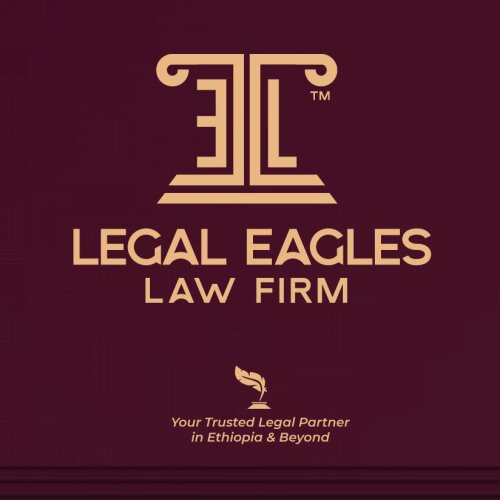Best Contract Lawyers in Ethiopia
Share your needs with us, get contacted by law firms.
Free. Takes 2 min.
Or refine your search by selecting a city:
List of the best lawyers in Ethiopia
About Contract Law in Ethiopia
Contract law in Ethiopia is primarily governed by the Ethiopian Civil Code, enacted in 1960. This legal framework outlines the nature of contracts, how they are formed, executed, and terminated. It stipulates the obligations of the parties involved and provides remedies for breaches. Contracts can be oral or written, but certain types of agreements, such as those relating to real estate, must be in writing. Ethiopian contract law emphasizes intent, mutual consent, and lawful consideration as the pillars of a valid contract.
Why You May Need a Lawyer
There are several situations in which individuals or businesses in Ethiopia may require legal help with contracts:
- Drafting Contracts: To ensure all terms are legally sound and enforceable.
- Reviewing Contracts: For a clear understanding of obligations and to identify potential risks.
- Negotiating Terms: To achieve mutually beneficial conditions.
- Resolving Disputes: Addressing breaches or misunderstandings through mediation or litigation.
- Complex Agreements: Handling industry-specific contracts requiring specialized knowledge.
- International Contracts: Managing legal considerations involving foreign parties.
Local Laws Overview
Key aspects of local laws relevant to contracts in Ethiopia include:
- Formation: Contracts are formed by offer and acceptance, with a clear intent to create legal obligations.
- Consideration: A lawful consideration is required, meaning something of value must be exchanged.
- Capacity: Parties entering a contract must have the legal capacity, i.e., age of majority and sound mind.
- Object: The subject of the contract must be lawful and possible.
- Form: Certain contracts, such as those related to immovable property, must be in written form.
- Breach and Remedies: Remedies for breach include specific performance, cancellation, or damages.
Frequently Asked Questions
What makes a contract legally binding in Ethiopia?
A contract is legally binding if it is formed with mutual consent, lawful consideration, and the parties involved have the capacity to contract. The object of the contract must also be lawful and achievable.
Do contracts need to be written to be enforceable?
While oral contracts are generally enforceable, written contracts are required for specific transactions such as those involving real estate or when required by law for evidentiary purposes.
How are disputes over contracts resolved?
Disputes can be resolved through negotiation, mediation, arbitration, or court litigation depending on the contract terms and nature of the dispute.
What happens if there is a breach of contract?
In case of a breach, remedies such as specific performance, rescission of the contract, or monetary compensation may be sought depending on the contract terms and the nature of the breach.
Can a contract be modified after it is signed?
Yes, contracts can be modified if all parties involved consent to the changes. The modifications should be documented in writing for clarity and enforceability.
What is the role of intent in contract formation?
Intent signifies the willingness of parties to enter into a binding agreement. It is a fundamental element in contract formation, ensuring that parties genuinely agree to the terms.
How does the law regard unconscionable contracts?
Unconscionable contracts or terms are those that are unfairly one-sided. Ethiopian law seeks to protect against such instances by ensuring contracts are equitable.
Are there protections for consumers in contracts?
Consumer protection laws complement contract law by preventing unfair trade practices and ensuring transparency in consumer transactions.
Is it possible to retract an offer in a contract?
Yes, an offer can be retracted before it is accepted, provided the retraction is communicated to the offeree. Exceptions may apply if an option contract is in place.
What factors can make a contract voidable?
Factors such as misrepresentation, undue influence, duress, or mistake can make a contract voidable, allowing the aggrieved party to nullify the agreement.
Additional Resources
For more information and assistance, individuals can contact:
- Ministry of Justice: Provides legal information and services.
- Ethiopian Bar Association: Offers services for finding qualified legal professionals.
- Chambers of Commerce: May offer resources and referrals particularly for business-related contracts.
Next Steps
If you require legal assistance in matters of contract, consider the following steps:
- Identify your specific legal needs relating to the contract.
- Contact a lawyer specializing in contract law for initial consultation.
- Prepare documents and relevant information about the contract or dispute.
- Discuss potential strategies and outcomes with your lawyer.
- Engage in negotiation or mediation before resorting to litigation if feasible.
By following these steps, you can navigate the complexities of contract law in Ethiopia more effectively.
Lawzana helps you find the best lawyers and law firms in Ethiopia through a curated and pre-screened list of qualified legal professionals. Our platform offers rankings and detailed profiles of attorneys and law firms, allowing you to compare based on practice areas, including Contract, experience, and client feedback.
Each profile includes a description of the firm's areas of practice, client reviews, team members and partners, year of establishment, spoken languages, office locations, contact information, social media presence, and any published articles or resources. Most firms on our platform speak English and are experienced in both local and international legal matters.
Get a quote from top-rated law firms in Ethiopia — quickly, securely, and without unnecessary hassle.
Disclaimer:
The information provided on this page is for general informational purposes only and does not constitute legal advice. While we strive to ensure the accuracy and relevance of the content, legal information may change over time, and interpretations of the law can vary. You should always consult with a qualified legal professional for advice specific to your situation.
We disclaim all liability for actions taken or not taken based on the content of this page. If you believe any information is incorrect or outdated, please contact us, and we will review and update it where appropriate.
Browse contract law firms by city in Ethiopia
Refine your search by selecting a city.

















